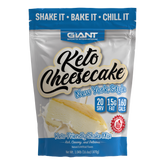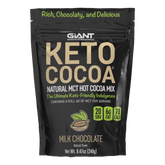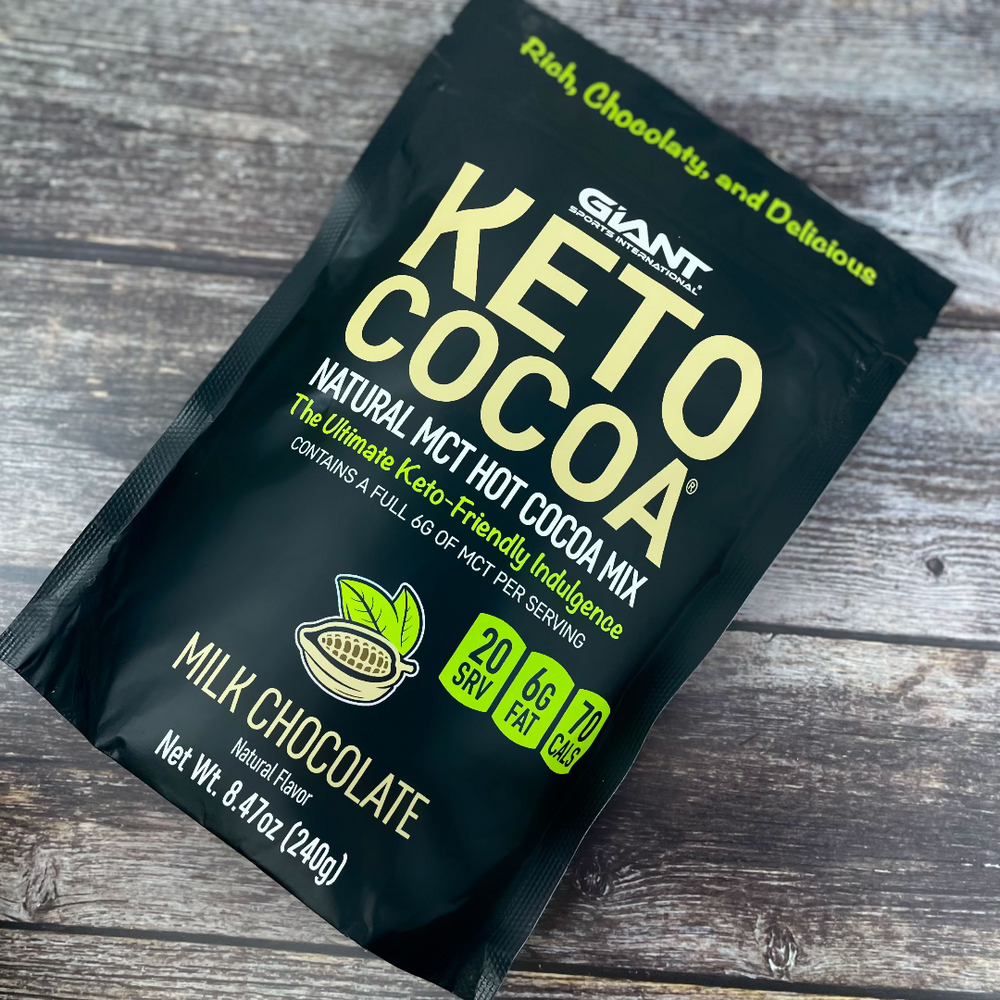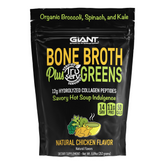Almond Milk & Carb Count: Is Almond Milk Good For The Keto Diet?

What You’ll Learn...
- What is Almond Milk?
- What Are the Health Benefits of Almond Milk?
- Does Almond Milk Work on the Keto Diet?
- Brands of Almond Milk
- When Should You Avoid Almond Milk?
- Is Almond Milk Keto-Friendly?
- Other Low-Crab Milk Alternative
- Your Takeaway
If you are used to drinking milk, you may have discovered that milk is higher in carbs with 13 in one cup, and you should find an alternative. Often, almond milk comes up as a possible substitute. Read on to find out how many carbs are in almond milk, different brands, and when milk should be avoided.
What Is Almond Milk?
While normal milk is dairy, almond milk is plant-based and made from almonds. Almond milk and others are easy to find because many people are lactose intolerant, and almond milk offers a viable alternative to milk.
Almond milk may come in different flavors, such as plain, chocolate, or vanilla, and it can be sweetened or unsweetened. If you don’t want to buy it, you can actually make your own. It is not difficult to do. You simply grind the almonds with water in your blender and strain out the almond pulp. If you want to add a sweetener, use a keto-friendly sweetener such as stevia or vanilla extract.
You can drink almond milk alone, use it in your cereal, or make a milkshake. It is a versatile addition to your keto diet.
What Are the Health Benefits of Almond Milk?
There are a number of health benefits to this nutritious milk alternative. Take a look at the following:
Low in calories: Although almonds themselves are higher in calories, almond milk is lower in calories because only a very small part of the nut remains in the finished drink. There are 30 to 50 calories in one cup of almond milk versus 146 calories in a cup of whole dairy.
Low in sugar: As long as your almond milk is unsweetened, it is low in sugar. One cup of unsweetened almond milk contains less than three grams of carbs, which makes it perfect for the keto diet.
Vitamin E: Almonds are high in vitamin E, which is an antioxidant that helps to fight inflammation. It is also known for protecting against cancer and heart disease. In addition, it benefits the health of the brain and seems to reduce the risk of Alzheimer’s Disease.
Calcium: Calcium is important to bone health.
Lactose-Free: This is beneficial for people who are lactose-intolerant, and almond milk can be a substitute for whole dairy milk.
Variety of Ways to Use it: Anything that you can do with milk can be done with almond milk. This means that it will work as a milk substitute for just about any recipe you follow.
Does Almond Milk Work on the Keto Diet?
Whatever variation of the keto diet you follow, almond milk will work for you. It contains less than three grams of carbs in a cup of unsweetened almond milk, so you can safely stay under the 30 to 50 grams per day guideline.
The keto diet works when you reduce your carbohydrate intake to less than 50 grams per day, which allows your body to transition from using glucose from carbs for its energy to using ketones from dietary and stored fats. Almond milk will be a beneficial and versatile addition to your diet.
Brands of Almond Milk
Almond milk is a plant-based nut milk that is more similar to cow’s milk than any other type of milk. It is creamy and tastes great, and it is full of vitamins and minerals. It is a great alternative to dairy milk, even if you aren’t on the keto diet. Take a look at the following brands.
- Blue Diamond Almond Breeze Unsweetened Almond Milk
- Calories: 30
- Fat: 2.5 grams
- Carbs: 1 gram
- Sodium: 170 mg
- Potassium: 160 mg
- Protein: 1 gram
In addition, this brand is loaded with vitamins and minerals, including the following:
- Vitamin A
- Vitamin C
- Calcium
- Iron
- Vitamin D
- Vitamin E
- Vitamin B2
- Phosphorous
- Magnesium
- Zinc
- Copper
- Manganese
- Pacific Organic Unsweetened Almond Milk
- Calories: 40
- Fat: 3 grams
- Carbs: 2 grams
- Sodium: 180 mg
- Protein: 1 gram
This almond milk is organic and vegan, and it will work well with your keto diet.
- Elmhurst Milked Almonds Unsweetened
- Calories: 130
- Fat: 11 grams
- Carbs: 3 grams
- Sodium: 5 mg
- Protein: 5 grams
This brand has a few more calories, but it also has five grams of protein.
- Califia Farms Unsweetened Almond Milk
- Calories: 35
- Fats: 3 grams
- Carbs: 1 gram
- Sodium: 160 mg
- Protein: 1 gram
This one is another great choice for low calorie, low carb almond milk.
- Silk Unsweetened Almond Milk
- Calories: 30
- Fat: 2.5 grams
- Carbs: 1 gram
- Sodium: 125 mg
- Protein: 1 gram
Silk is a popular brand for milk alternatives, and their almond milk is keto-friendly.
- 365 Organic Unsweetened Almond Milk
- Calories: 40
- Fat: 3 grams
- Carbs: 2 grams
- Protein: 1 gram
This is another organic and unsweetened option.
When Should You Avoid Almond Milk?
Fortunately, almond milk is plant-based and contains very little in terms of carbs. It is also vegan, and it is good for you with many other nutrients. Almond milk is easy to make, and it can substitute for milk in any number of ways.
The only reason to avoid almond milk is a nut allergy. Barring that, it is a great item to add to your keto diet.
Is Almond Milk Keto-Friendly?
When you start the keto diet, you reduce your intake of carbs and increase your consumption of healthy high-quality fats and proteins. You are effectively transitioning your body from using glucose as a source of energy to using the ketones from stored and dietary fats.
This process leads the body to a state of ketosis, and then you need to maintain it. You can do this by continuing to keep your carbs low. Your body will adapt to ketosis and begin using the ketones more efficiently.
People may initially worry about having to cut out favorite foods and drinks, but they soon learn that there are delicious substitutes for non-keto foods that are often even more delicious. Almond milk is a great item to use on its own or in place of dairy milk.
There are many people who say that humans should not consume dairy milk for a number of reasons, and almond milk offers an alternative. Not only is it lactose-free, but there are no hormones or additives, and it is vegan. You should try to buy organic because it is free of harmful chemicals.
Almond milk has fewer than three grams of carbohydrates in each one-cup serving, so it is not going to push your carbohydrate intake too high. You will be able to use almond milk as a replacement for dairy milk without any problems.
Other Low-Carb Milk Alternatives
There are a few other low-carb milk alternatives, although almond milk is the most popular. For example, Hemp milk is made from hemp seeds that are soaked and strained. They have five grams of carbs, six grams of fat, and five grams of protein.
Coconut milk is another option. However, this one is high in calories. One cup contains 230 calories. It is not high in protein, but it has low carbs. Coconut is good for you, but you should be aware of the calories.

Pea milk is made from pea protein from yellow peas. It is not green, nor does it taste like peas. You need to find an unsweetened version to stay low in carbs. People do use it as an alternative to milk.
Flax milk is another dairy milk replacement. It is inexpensive, and it is low in carbs and high in omega-3 fatty acids. These benefits help lower inflammation.
Your Takeaway
The final verdict is that almond milk is keto-friendly. It is low in carbs and it is a vegan alternative to dairy-based milk. You can buy it at the store, but you should look for it to be organic and unsweetened. Most almond milk brands have less than three grams of carbs in one cup.
You can make almond milk yourself with purified water and organic almonds. It is really simple to do. You can use almond milk in place of dairy in any recipe, or you can drink it or pour it on your cereal. This versatile product is going to be useful in your keto diet.
The only time you should avoid almond milk is if you have a nut allergy. Otherwise, it is a great low-carb option to replace dairy milk. Most of the store brands are very similar in terms of carbs, protein, fat, and calories, but they do vary in terms of which vitamins and minerals they have. Fortunately, almond milk is widely available because so many people are lactose-intolerant. You should have no trouble finding it in most grocery stores. If you are on the keto diet, almond milk is a drink that you can put on the list for consumption.








